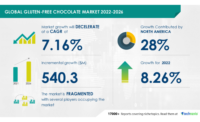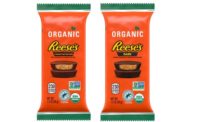As consumers look for different things from their food, the food additives market needs to respond, says a new Mordor Intelligence report on Global Food Additives Market.
Food additives are used to enhance the taste, color and texture of food as well as to maintain the freshness and nutritional content.
And today, consumers are shifting away from fresh foods. They are demanding convenience, but marked with a longer shelf life, organic and natural, reduced-sodium, reduced sugar, low-fat ingredients and ingredients that help with weight control.
But as food makers work to meet those demands while also looking to avoid sacrificing flavor, texture, taste and shelf life, they’re shifting the responsibility on to additive manufacturers to address these growing consumer demands.
That’s where companies such as Cargill Inc., DuPont, Kerry Group, ADM, Tate & Lyle, Danisco, Givaudan, Brenntag, Firmenich, Associated British Foods, and International Flavours & Fragrances come into play. They’re aligning their strategies in the natural segments and expanding facilities in emerging markets, thus holding 80 percent of the market share, the report shows.
Overall, the market for food additives is expected to cross $64.22 billion by 2020; growing at a CAGR of 5.5 percent during the forecast period 2015-2020.
Specifically, growing consumer demand for low-fat options and low wastage costs are expected to drive the demand for fat replacers and antioxidants. Moreover, preservatives also become more and more important as companies looks to reducing food spoilage due to microbial reactions.
The largest segment in the market is flavors and flavor enhancers, which recorded $11.9 billion in 2014. That’s followed by hydrocolloids, which function as texturizers as well as thickening, stabilizing and gelling agents.
Food emulsifiers and food enzymes are expected to grow at a CAGR of 5.4 percent and 8 percent respectively during 2015-2020. And the most popular segment is sweeteners, which are seen as an alternative to sugar in food and beverages.
One more major driver in the food additives market is the growing supply chain complexities and inefficiencies in the food and beverage industry. Transportation costs, last-mile reach for food products, and storage facilities are becoming a bigger part of the equation for companies looking to expand the whole process, which, in turn, continues to get more complex.
Internationally, emerging markets such as China and India are expected to overtake the United States and other mature markets (currently accounting for 60 percent of global market) in the processed food segment, which will drive the demand for food additives.
However, as a large section of consumers in the emerging countries are unable to afford processed foods with value added/natural ingredients or preservative-free or clean label products, the market is still wide open for synthetic food additives.
Many foreign companies are also entering the emerging economies through partnerships as they see developed countries as mature markets in terms of revenue growth.
Mordor Intelligence is a global market research and consulting firm.





